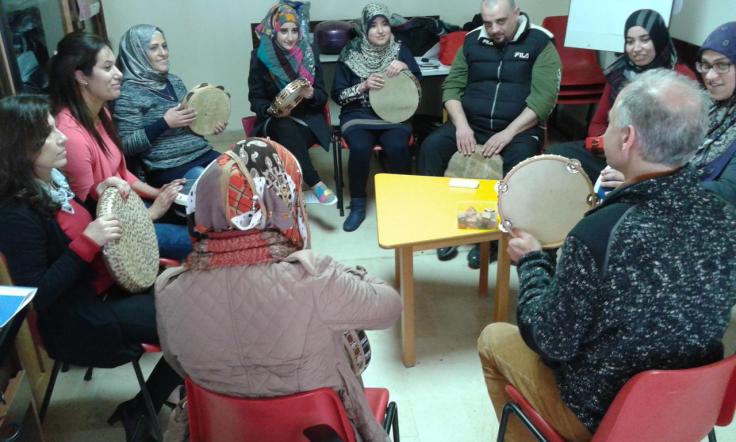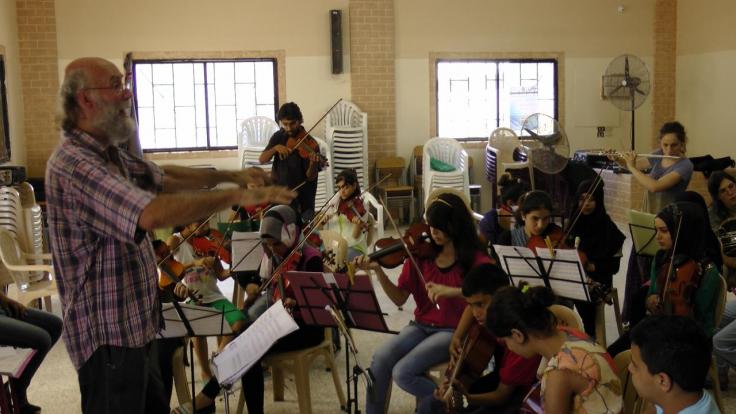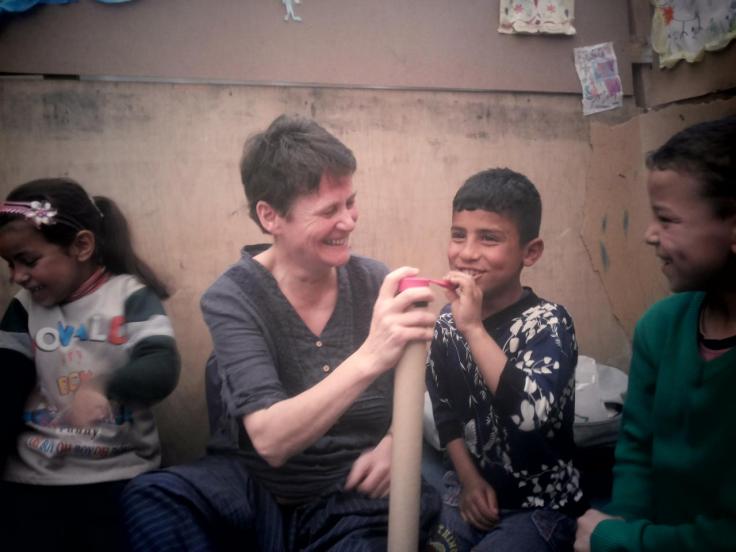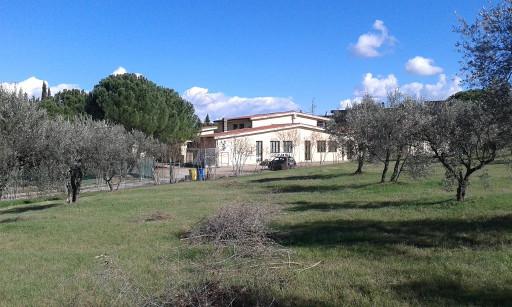MARS – Music and Resilience Support
for the development of psycho-social music resources
Project n° 2015-1-FR01-KA202-015277 funded by the Erasmus+ Programme of the European Union (Strategic Partnership for Vocational Education and Training) and coordinated by the International Music Council.
MARS Training Course - Pilot edition, free of charge!
for community musicians, music therapists, health and education workers
a certified specialization in psycho-social music intervention within under-resourced, deprived and marginalized communities.
Call for Applications
MARS offers a high level, specialized and certified training in psycho-social music intervention within under-resourced, deprived and marginalised communities, targeting primarily populations of refugees and asylum seekers, which are on a dramatic increase both within Europe and worldwide. The course will equip community musicians, music therapists and other health and education workers with the knowledge, skills and competences to work in problematic multicultural contexts, between hosting and hosted communities, in order to plan and carry out well-matched interventions for the protection of children, adolescents and adults.
The MARS partnership comprises leading international organizations involved in the promotion and development of music education and health resources for the protection of the under-privileged and for the promotion of equity and inclusion. The MARS international staff group comprises high-level professional figures in music, music therapy, social education, anthropology and psychology (see website for details).
The MARS training Course offers a blended learning environment, with practical workshops, online theoretical and methodological support, distance tutoring and supervision, and experiential field training, monitored and evaluated by continuous assessment.
Period
11st June 2016 - 31st July 2017.
Structure
- preliminary online orientation (June 2016);
- a 10 day residential seminar (5 -15th July 2016, Montespertoli, Italy);
- an E-learning course of 10 Modules for a total of 200 hours;
- 80 hours of training experience (in student's local environment);
- periodic online tutoring and supervision support.
Contents
- Musical Resources and Techniques (3 modules): creation of sound objects/instruments; vocal and instrumental activities and repertoire;
- Inter-cultural comprehension and mediation: elements of sociology, anthropology;
- Risk factors in Deprivation and Marginalization: elements of sociology, psychology, psychopathology;
- Psychosocial intervention: general objectives, theoretical underpinning, frameworks of thinking;
- Facilitation and Support: listening and communication techniques, group facilitation with music; developing reflective and responsive musical practices for healing, building resilience and empowerment;
- Intervention management (2 modules): analysis of context, target group, direct and indirect stakeholders; project planning, monitoring, evaluation and assessment;
- Field Training: personal elaboration on experience.
Certification
on completion of the course, students will be awarded a MARS specialization certificate corresponding to the defined Specialization Profile. EU validation will be granted through Open Badges and ECVET accreditation.
Applicants
the course is open to 18 students resident in the programme and partner countries (UK, France, Spain, Italy, Lebanon), with qualifications/experience in community music, music therapy, health and/or education work. The course will be taught in English, a good working knowledge of which is required.
Application procedure
applications should complete and upload the online application form no later than 16th April 2016. Applicants may be contacted for a Skype interview with the selection committee. Notification of the result will be sent via email by 30th April 2016. Successful applicants will be asked to sign an Acceptance Letter and a Learning contract.
Selection criteria
students will be selected considering the following:
- general Curriculum Vitae, professional qualifications, work experience, training (formal and nonformal);
- level of musical skills and experience (formal qualifications will be taken into account, but are not compulsory, but applicant must be a practising musician of some kind);
- experience in outreach work with under-privileged people (not necessarily musical);
- motivation, interest and commitment;
- English language skills (written and spoken).





